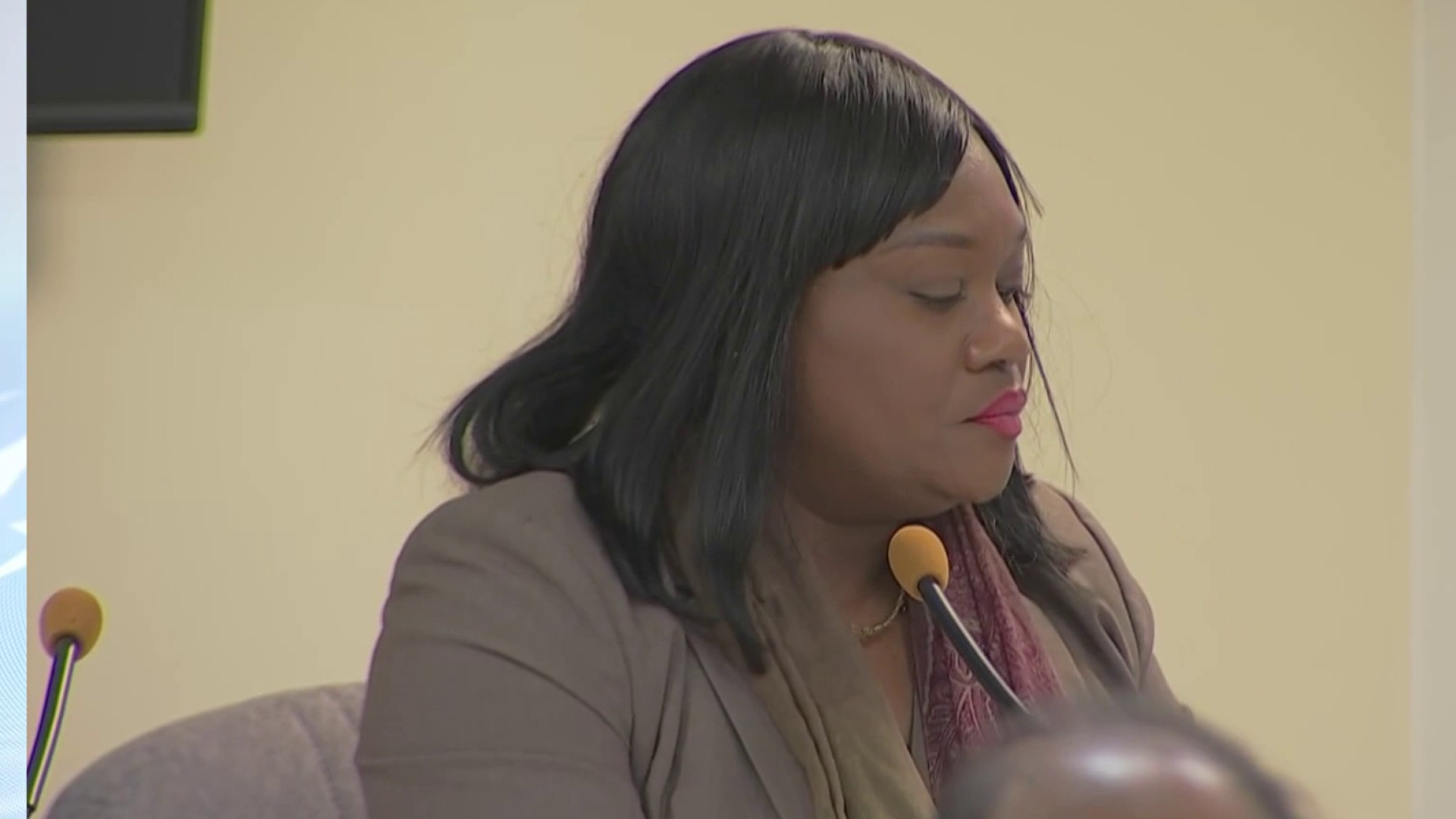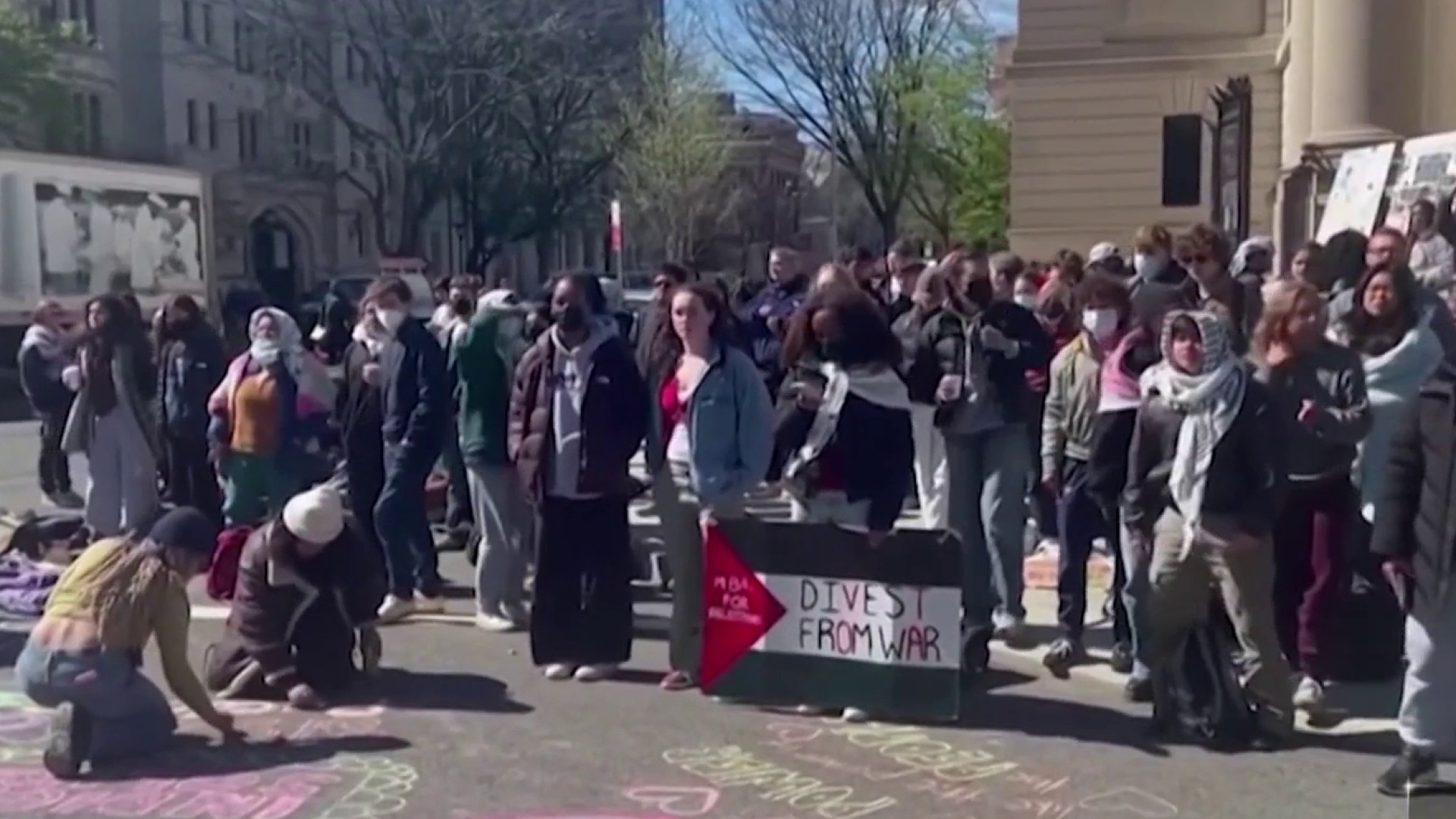The neighbor who knocked on Carmalena Stoltzfus Iyengar's door in Lancaster city didn't speak much English, but her message was clear.
"Thank you,'' she said, pointing to a homemade sign in the window. Written in three languages, including Arabic, it read: "No matter where you are from, we're glad you're our neighbor.''
The woman, Wesam Aldalati, is a Syrian native. She and her husband, Mohammad Alsalkini, are new residents in Lancaster.
Using a smart phone to translate her Arabic into English, she told Stoltzfus Iyengar, "Thank you so much for your beautiful words.''
Then in a sign of deep affection, she kissed Stoltzfus Iyengar twice on each cheek.
Stoltzfus Iyengar and her older daughter, Leena, had made the sign after seeing signs with similar sentiments popping up all over Lancaster and beyond.
A pastor's concerns
Local
Breaking news and the stories that matter to your neighborhood.
The movement began during last year's primary election season when the Rev. Matthew Bucher of Immanuel Mennonite Church in Harrisonburg, Virginia, became bothered by calls to ban Muslims and build a wall to keep people out of this country.
After consulting with church members, Bucher placed a sign on the lawn of his church that read: "No matter where you are from, we're glad you're our neighbor.'' The sign was in three languages: Spanish, English and Arabic.
It was a small gesture by the pastor from Annville, Lebanon County, to get people thinking about their neighbors.
But his simple message didn't stop there. As the political rhetoric heated up, other churches and people asked where they could obtain the signs.
"So we printed 300 signs to give to other Mennonite churches,'' he said earlier this week.
Some signs have included French. At least one, Bucher said, is in Burmese.
The signs sell for $10 apiece to cover costs.
As the signs were distributed, the message spread. Suddenly, the church began to receive calls from churches and individuals from Pennsylvania, Michigan, North Carolina, Wisconsin and Canada.
"The message seemed to resonate,'' he said. "We sold out pretty quickly.''
A National Public Radio story about the signs heightened interest as well.
Bucher said the church made the PDF image for the signs available online for free to allow others to copy and send to printers. They also printed an additional 1,000 signs.
Spreading the message
Several hundred of those signs ended up at the Manheim Township home of Stephanie Horst.
Her father, Ray Horst, lives in Harrisonburg. He heard about the signs at his church and asked Stephanie if she was interested.
She said yes.
"We took a carload of 250 signs to Stephanie,'' he said.
She put a notice on Facebook and told friends she had the signs. As of this past Monday, most had been sold.
"I felt the need to do something after all the negative rhetoric from the election,'' she said. "I wanted people to know there's somebody from the neighborhood who's an ally.''
The Rev. Pam Reist, pastor at Elizabethtown Church of the Brethren, said the signs her church ordered "have taken off like hotcakes. A number of people have them in their yards.''
Jenni Leister, of Lancaster, is proud of the sign in her yard.
"I felt it was terribly important for all people to know that despite how the election turned out, this area is going to make them welcome,'' she said.
Leister said the rhetoric in the debates alarmed her 6-year-old son, Nouraiz, who is from Kazakhstan.
When Donald Trump expressed his desire for a Muslim ban, Nouraiz asked her if that meant his Uncle Afaq from Pakistan would not be allowed to visit.
"He's 6,'' she said. "I didn't think he was paying attention'' to what the candidates were saying.
Leister, who works in the Bunyaad Rug Room at Ten Thousand Villages, is married to Yousaf Chaman, a native of Pakistan.
She purchased a sign from Community Mennonite Church and placed it in her yard.
"We felt it was the right thing to do,'' she said.
Stoltzfus Iyengar said she initially questioned what good the sign would do, but when her neighbor thanked her, they both teared up.
"To hear her react like that was incredibly rewarding,'' she said.
It also has given her confidence to speak out.
"I'm feeling more compelled to use my voice,'' she said.
Bucher, the pastor who started it all, said there is something else people should remember in this season of Advent.
"Jesus was a refugee himself,'' he said.
Information from Lancaster Online



